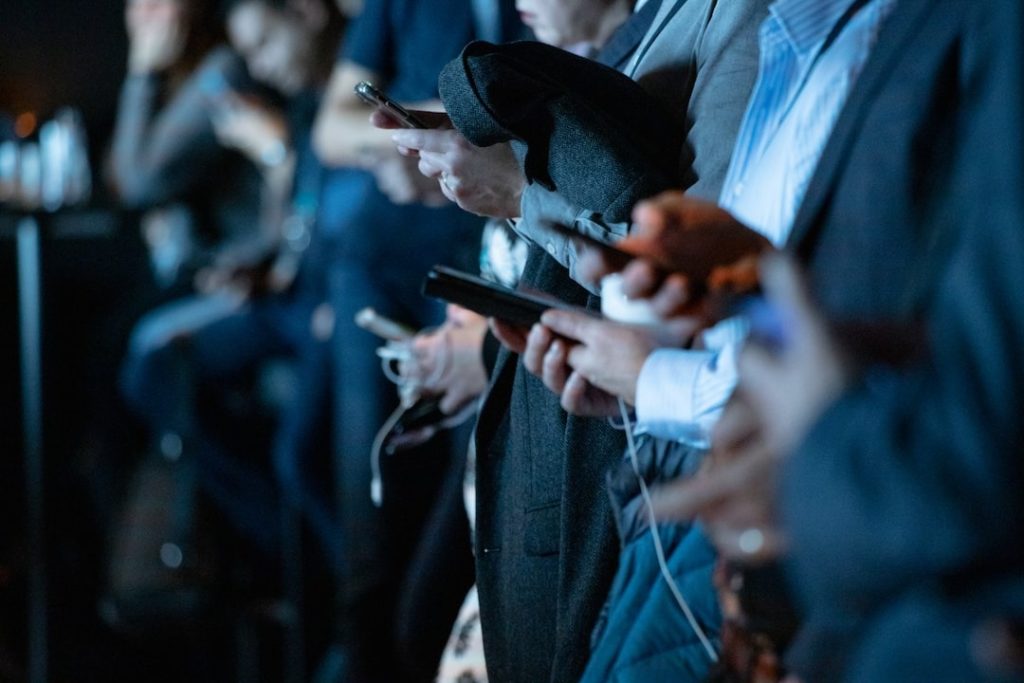In this generation, social media plays a significant role in our everyday lives. While we are aware of this, we continue to consume media irresponsibly without considering the harm we can do to our mental health. Studies show that social media is designed to be addictive and is associated with anxiety and depression.
From the moment we open our eyes in the morning, we immediately reach for our phones as if our lives depended on them. It’s almost like we fear something major may have happened within the span of our eight hours of sleep that we do not want to miss out on.
Risks of Social Media
Social media contains a reinforcing nature that activates the brain’s reward system by releasing dopamine, a “feel good chemical.” Dopamine is released in the brain when we engage in pleasurable activities such as eating food, having sex, and engaging socially with others. The dopamine surges that are produced from social media, however, mislead us into believing that using social media produces happiness. For example, Instagram ensures repeated engagement by designing a platform based on virtual connection through likes and comments.
Searching For Validation
When an individual creates a post, its unknown and desired outcome can keep users engaged with the platform. Through platforms like Instagram, people often search for validation or a boost of self-esteem gained by the potential positive feedback from their social circles and strangers.
Due to human’s natural desire for positive feedback, people often exclusively post the highlights and positive outcomes in their lives, depicting a perfect life. As an effect, we tend to compare not only the number of likes/ positive feedback gained from others’ posts but also begin to compare our lives to others.
An Anxiety-Driven Force
The digital age has expanded to the point that people are almost required to consume social media to keep up with the news and trends to form successful in-person connections with others. Social media also enables us to connect with people from around the world at virtually any time of the day. Such concerns can create anxiety and depression.
According to PLoS One, keeping connected through electronic devices before bed can significantly affect our ability to sleep. This is due to the blue light emitted through electronic screens, which stimulates parts of the brain and makes us feel awake and energized. Further, “Approximately 21% of adults say that they wake up to check their phone during the night, leaving them at an even higher risk of losing sleep and developing a sleep disorder like insomnia.”
Getting Proper Sleep
Getting proper sleep plays a major role when maintaining our mental health. It can be challenging to resist the urge to use electronic devices while in bed. But by doing so, we enable ourselves to have more sound sleep, both as we fall asleep and as we sleep throughout the night.
Social Media and Young Adults
According to EXLCI J., the widespread perception that young people are constantly on their phones supports research. About 95% of adolescents have access to a smartphone, and 45% report using online platforms almost regularly throughout the day. Social media gives young people an outlet to connect with others who may be dealing with the same struggles, giving them the social support previous generations lacked.
However, research indicates that irresponsible social media consumption can lead to mental health issues such as depression and anxiety. According to the same EXLCI J. study, social media platforms have a stronger effect on mental health the earlier a person starts using them.
Tips for Healthy Media Consumption
While social media can negatively affect mental health, it also contains beneficial factors when used responsibly. You can get into a healthy social media routine by moderating how much screen time you consume daily.
Use In Moderation
Detaching from a device that can sometimes feel like an extension of ourselves can be challenging. To get into the habit of disconnecting from electronic devices, you can practice leaving your phone in another room during mealtimes, while socializing, and before bed.
Turn Off Notifications
It can be difficult to disconnect from social media when we constantly receive notifications from many platforms. Social media platforms intentionally hold this feature to keep us addicted to their platforms.
Sometimes logging off social media platforms such as Instagram is not enough. When notifications are on in our settings, online platforms continue to have the power to notify you to log back on and check your new notifications.
To prevent this from occurring, we can turn off notifications in our settings and silence notification alerts to prevent compulsive social media usage.
By disconnecting, you can live a more fulfilled life and have time to focus on more important aspects of your life, such as connecting with people in real life.
While social media can be a great entertainment source with some positive aspects, consuming media irresponsibly can lead to a variety of mental health issues. Social media platforms are designed to be addictive and are linked with depression and anxiety. At SoCal Mental Health, we understand that mental health issues could stem from seeking validation from social media. While we have the freedom to use social media as we desire, it is important to use social media responsibly and moderately. Social media can dictate your life and damage your mental health if you allow it. To maintain your mental health and prevent social media from consuming your life, you can practice disconnecting from electronic devices. If you or a loved one is currently struggling with balancing their internet use, then the time to reach out is now. To learn more, call (949) 502-2041 today.












